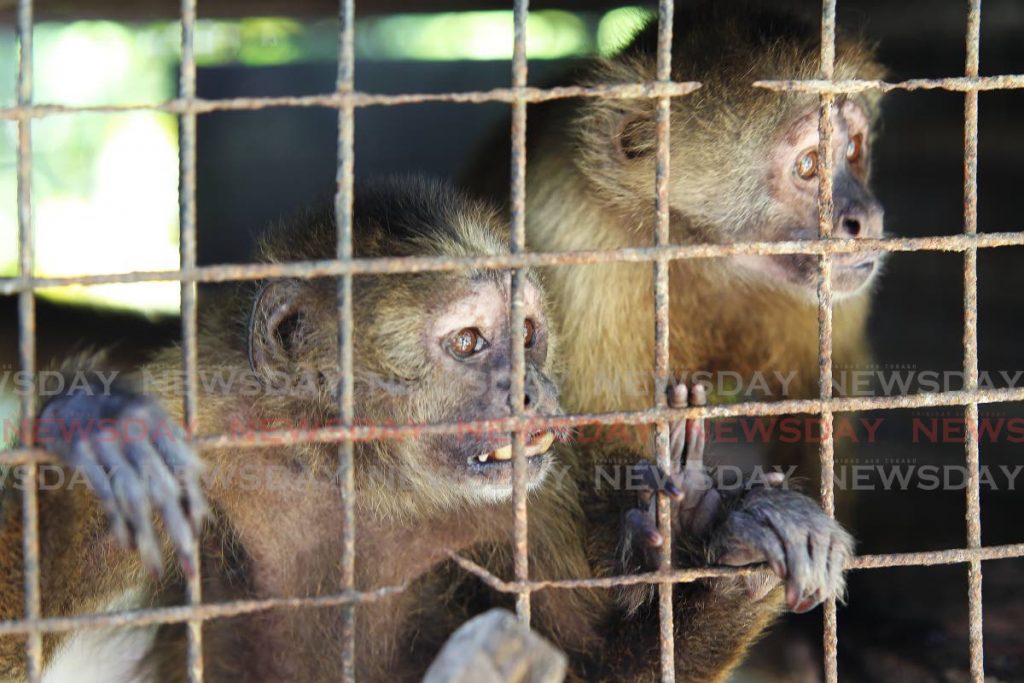TTMA: Illegal wildlife trade serious threat to ecosystem

The TT Manufacturers’ Association (TTMA) has called the illicit wildlife trade “a serious threat to local ecosystems and the survival of endangered and vulnerable species.”
In a release Monday, the TTMA said wildlife trafficking is a major issue and is considered one of the most lucrative forms of illicit international trade. The illegal wildlife trade is typically transcontinental: United Nations Office on Drugs and Crime noted that virtually every country in the world plays a role as a source, transit or destination of illicitly traded wildlife. The World Wildlife Fund (WWF) reports that during the past 40 years there has been a 58 per cent decline in vertebrate population and an 81 per cent decline in populations living in freshwater systems, exacerbated by the illicit trade in wildlife.
Ricardo Meade, founder of the El Socorro Centre for Wildlife Conservation said in the release, that non-native species of monkeys were one of the most widely traded animals, entering the country via Venezuela or Guyana. He said one reason monkeys sold to captivity start displaying aggression to their owners is because when hunters kill their mother they forever associate humans as harmful. The monkeys then react to this traumatic experience. Monkeys, he added, do not make good pets because they carry several diseases, and, as they have the largest canine teeth relative to body size of any animal, it could be dangerous if they were to attack their owners or handlers.
He cautioned that monkeys could carry diseases like tuberculosis and malaria. He also criticised abandoning them. He said his centre was at capacity when it came to rescuing and rehabilitating abandoned monkeys. He claimed several have already been released into the wild and were a massive problem, negatively affecting the country’s depleted and sensitive ecosystem.
Birds are also a big part of the illegal wildlife trade, Meade said, and this could leave to the decimation of the bird population is a viral infection were to occur.
He criticised what he said was a lackadaisical approach from the protective services and other authorities, which did not enforce laws. He called on the Ministry of National Security to focus on the illicit trade before an infectious animal contaminated the local ecosystem.
Meade said to prevent the trade, education is needed, starting from a young age, to change entrenched bad behaviour and cultural norms.
In an e-mailed response to Newsday on the issue, Agriculture, Land and Fisheries minister Clarence Rambharat said since his appointment he has been speaking out against the illegal trade in wildlife, particularly from Venezuela.
"The mnistry has had several amendments made to the laws and regulations to increase the fines for illicit activities and our game wardens have prosecuted numerous offences. The key issue is border security and surveillance. It also points to the complicit behavior of some pet shop owners.
"Game wardens have increased their patrols and support to the other arms of law enforcement. The filling of critical vacancies in the Forestry Division including game warden vacancies would assist in extending coverage." (With reporting by Paula Lindo)


Comments
"TTMA: Illegal wildlife trade serious threat to ecosystem"